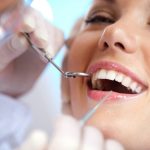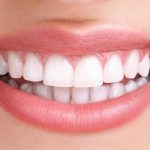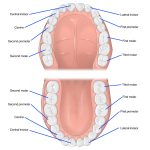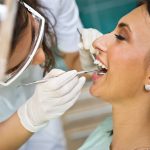Removing Black Spots on Teeth: Tips and Tricks for a Brighter Smile

Are you self-conscious about the black spots on your teeth? Are you hesitant to smile in public because you’re embarrassed about the discoloration? Don’t worry; you’re not alone. Black spots and stains on teeth are a common dental problem that affects many people. These black spots can be caused by various factors such as poor dental hygiene, smoking, medication, or aging. Fortunately, there are many ways to remove black spots on teeth and achieve a brighter, more confident smile. In this article, we will explore some of the most effective tips and tricks for removing black spots on teeth. We will discuss both natural remedies and professional treatments that can help you achieve a brighter smile. Whether you’re looking for a quick fix or a long-term solution, we have got you covered. By the end of this article, you will have a better understanding of how to remove black spots on teeth and maintain a healthy, bright smile.
Black spots on teeth can be a cause of concern for many individuals. These spots can be caused by a variety of factors, including poor oral hygiene, consumption of dark-colored foods and drinks, and smoking. In some cases, black spots can indicate tooth decay or cavities, which require immediate attention from a dentist. However, there are several ways to remove black spots on teeth, including professional teeth whitening treatments, at-home whitening kits, and natural remedies such as baking soda and hydrogen peroxide. It is essential to maintain good oral hygiene practices and limit the consumption of dark-colored foods and drinks to prevent the formation of black spots on teeth.
Maintaining good oral hygiene is crucial for overall health, as well as for a brighter smile. Neglecting to brush and floss regularly can lead to the buildup of harmful bacteria in the mouth, which can cause gum disease, tooth decay, and bad breath. In addition, poor oral hygiene can also lead to unsightly black spots on teeth, which can be difficult to remove without professional treatment. By adopting a consistent oral hygiene routine of brushing twice a day, flossing daily, and using mouthwash, you can help prevent dental problems and keep your teeth looking their best.
Causes of Black Spots on Teeth
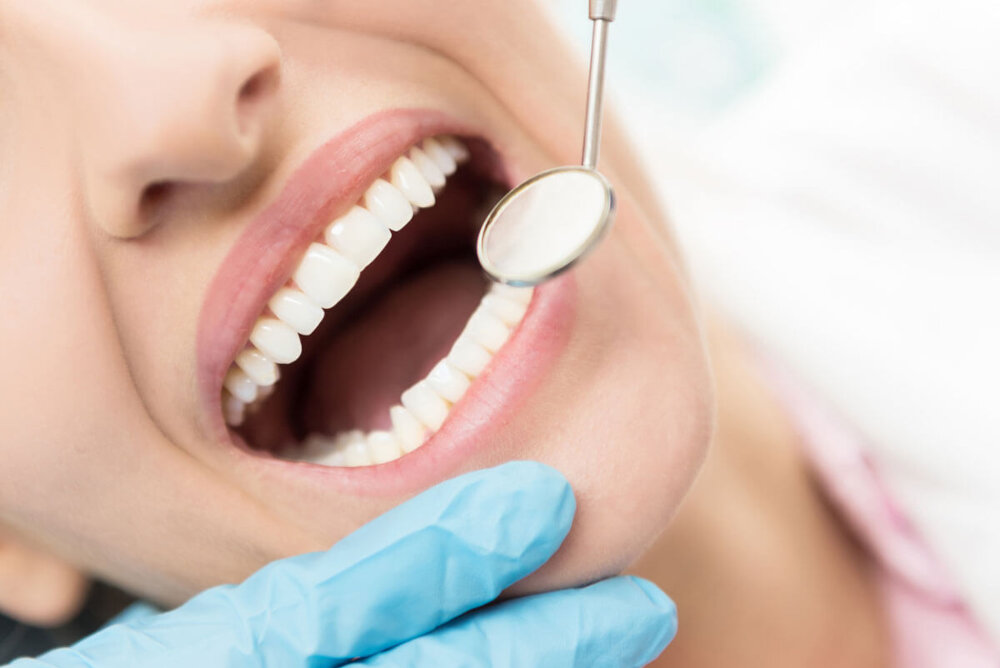
Black spots on teeth are a common dental problem that can affect people of all ages. These spots can be caused by a variety of factors, including poor oral hygiene, frequent consumption of dark-colored foods and beverages, smoking, and certain medical conditions. Poor oral hygiene is one of the most common causes of black spots on teeth. When teeth are not brushed and flossed regularly, plaque and bacteria can build up on the teeth, leading to discoloration and decay. This can result in the formation of black spots on the teeth, which can be unsightly and difficult to remove. Another common cause of black spots on teeth is the frequent consumption of dark-colored foods and beverages, such as coffee, tea, red wine, and chocolate. These substances contain pigments that can stain the teeth over time, resulting in the formation of black spots. Smoking is also a major contributor to black spots on teeth, as the tar and nicotine in cigarettes can cause significant discoloration and staining. Finally, certain medical conditions, such as dental fluorosis, can also lead to the formation of black spots on teeth. This condition is caused by excessive fluoride exposure during tooth development and can result in brown or black spots on the teeth.
Poor oral hygiene is a major culprit for the appearance of black spots on teeth. Neglecting proper brushing and flossing can lead to the buildup of plaque and tartar, which can eventually cause tooth decay and discoloration. Additionally, consuming sugary and acidic foods and drinks can also wreak havoc on the teeth and contribute to the development of black spots. It is important to maintain good oral hygiene habits such as brushing twice a day, flossing daily, and visiting the dentist regularly to prevent the onset of black spots and other dental problems. By taking care of your teeth, you can achieve a brighter, healthier smile that you can be proud to show off.
Certain foods and drinks can contribute to the formation of black spots on teeth. Dark-colored beverages such as coffee, tea, and red wine can stain teeth over time, while acidic drinks like soda and sports drinks can erode tooth enamel, making them more susceptible to discoloration. Foods that are high in sugar and carbohydrates can also lead to tooth decay, which can result in dark spots or cavities. To maintain a brighter smile, it is important to consume these types of foods and drinks in moderation and to practice good oral hygiene habits such as brushing and flossing regularly. Additionally, incorporating foods that are high in calcium and vitamin D, such as dairy products, leafy greens, and fish, can help strengthen teeth and promote overall oral health.
Smoking is one of the most harmful habits for oral health, leaving behind not only an unpleasant smell but also causing a variety of dental problems. Nicotine and tar from smoking can stain teeth and create black spots that are difficult to remove with regular brushing. Smoking also causes bad breath, dry mouth, and gum disease, which can lead to tooth loss. Moreover, smoking increases the risk of oral cancer, making it essential to quit this habit as soon as possible. Quitting smoking is a challenging task, but it can improve oral health and overall well-being.
When it comes to removing black spots on teeth, medications may be a helpful solution. Prescription-strength whitening agents, such as hydrogen peroxide or carbamide peroxide, can be applied by a dental professional to help lift surface stains and discoloration. Additionally, some over-the-counter whitening toothpastes and strips may also contain these active ingredients. However, it is important to note that while these medications can improve the appearance of black spots, they may not address underlying dental issues that could be causing the discoloration. It is always best to consult with a dental professional before beginning any whitening treatment.
Prevention of Black Spots on Teeth
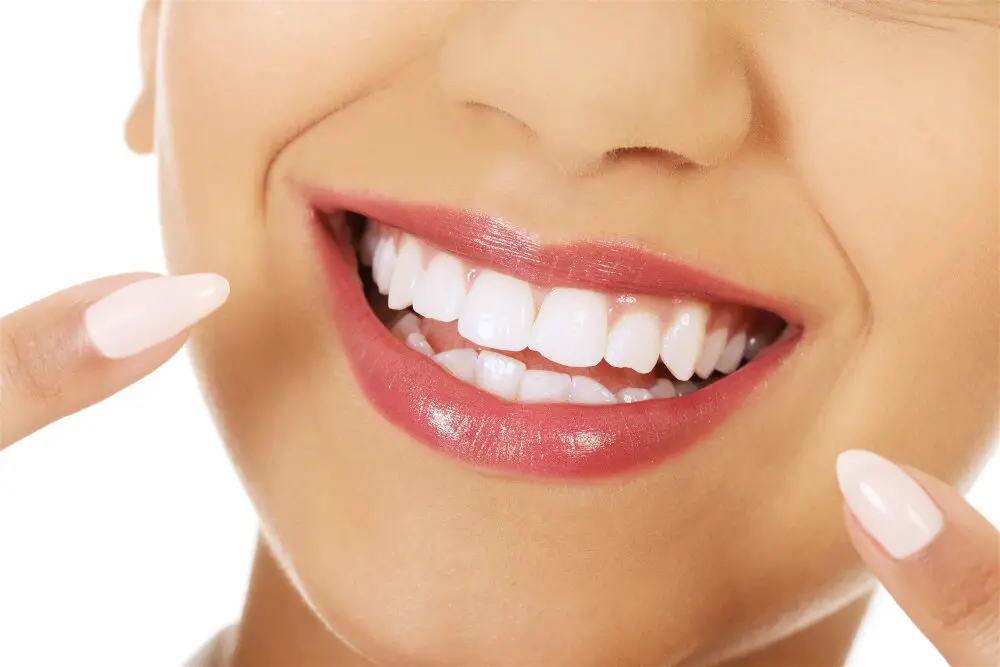
Prevention of black spots on teeth is essential to maintain good oral hygiene and prevent tooth decay. One of the primary causes of black spots on teeth is poor dental hygiene, which can lead to the accumulation of plaque and tartar. Regular brushing, flossing, and visits to the dentist can help prevent these spots from forming. Brushing your teeth twice a day with fluoride toothpaste and flossing once a day can remove plaque and prevent it from hardening into tartar, which can be more challenging to remove. Regular dental cleanings can also remove any tartar buildup and prevent black spots from forming. Another way to prevent black spots on teeth is to avoid consuming foods and drinks that can stain teeth. Foods and drinks such as coffee, tea, wine, and berries can cause teeth to stain and form black spots. If you do consume these items, it’s essential to brush your teeth afterward or rinse your mouth with water to remove any residue. Additionally, avoiding smoking or chewing tobacco can prevent black spots from forming on your teeth. The nicotine and tar in tobacco can stain teeth and lead to the formation of black spots. By following these preventive measures, you can maintain good oral hygiene and prevent black spots from forming on your teeth.
Brushing and flossing regularly is a crucial part of maintaining good oral hygiene and achieving a brighter smile. Brushing your teeth twice a day with a fluoride toothpaste helps remove plaque and food particles that can cause tooth decay and black spots on your teeth. Flossing at least once a day removes bacteria and debris that your toothbrush can’t reach, preventing gum disease and decay. Along with brushing and flossing, using an antiseptic mouthwash can also help kill bacteria and freshen breath. By incorporating these habits into your daily routine, you can ensure that your teeth stay healthy and free from unsightly black spots.
If you’re looking to remove black spots on your teeth, it’s essential to avoid certain foods and drinks that can cause staining. Some of the most common culprits include coffee, tea, red wine, and dark-colored sodas. These beverages contain chromogens, which are pigments that can stick to your teeth’s enamel and cause discoloration. Additionally, acidic foods and drinks, such as citrus fruits and juices, can weaken your enamel and make it more susceptible to staining. To keep your teeth looking bright and healthy, try to limit your consumption of these staining culprits or rinse your mouth with water after consuming them.
It’s no secret that smoking is one of the worst habits for oral health. In addition to causing bad breath and staining teeth with unsightly black spots, it can also lead to serious dental problems such as gum disease and tooth loss. If you’re a smoker, quitting can be one of the best things you can do for your teeth and overall health. While it may be challenging, there are many resources available to help you quit, from nicotine replacement therapy to support groups. By taking steps to quit smoking, you can improve your oral health and enjoy a brighter, healthier smile.
Consulting with a dentist is highly recommended if you want to remove black spots on your teeth. Dentists are trained professionals who can provide you with expert advice and treatment options to help you achieve a brighter and healthier smile. During your consultation, your dentist will examine your teeth and identify the underlying cause of the black spots. They may recommend a professional cleaning, teeth whitening, or other dental treatments depending on the severity of the discoloration. Additionally, your dentist can provide you with valuable tips and tricks to maintain good oral hygiene and prevent future stains from forming. By consulting with a dentist, you can be sure that you are receiving the best possible care for your teeth and achieving optimal results.
Home Remedies for Removing Black Spots on Teeth
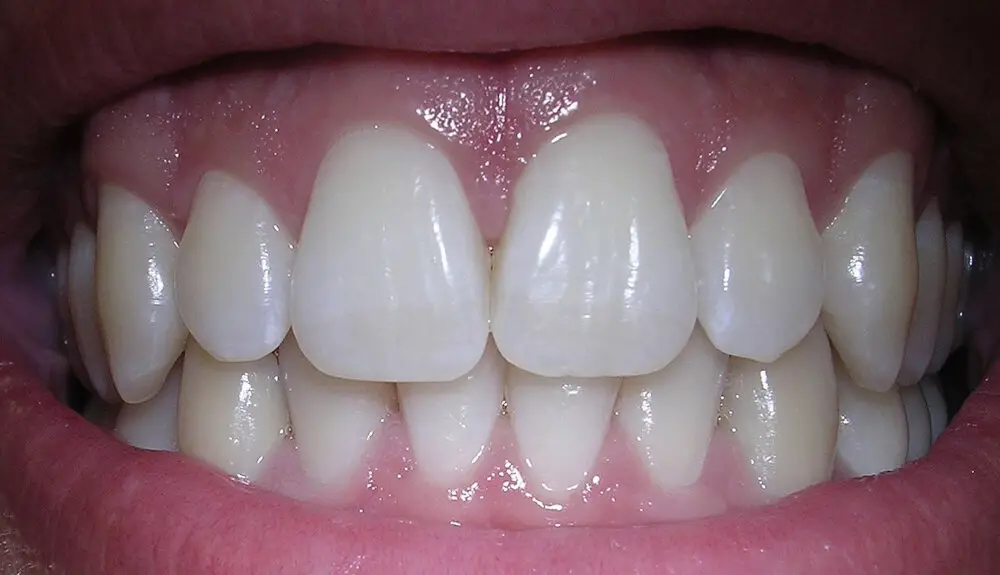
Black spots on teeth can be unsightly and can cause embarrassment when smiling or talking. There are several home remedies that can help remove these spots and restore your confidence in your smile. One effective remedy is baking soda and hydrogen peroxide. Mix a small amount of baking soda with hydrogen peroxide to form a paste. Apply the paste to your teeth and let it sit for a few minutes before rinsing with water. This mixture can help remove surface stains and discoloration on your teeth, leaving them cleaner and brighter. Another natural remedy for black spots on teeth is apple cider vinegar. Dilute a small amount of apple cider vinegar with water and swish the mixture around your mouth for a few minutes before spitting it out. The acidic properties of apple cider vinegar can help break down stains and remove discoloration on your teeth. However, it is important to use caution when using apple cider vinegar as it can be damaging to tooth enamel if used too frequently or in too high of concentrations. With regular use of these home remedies and proper dental hygiene, you can achieve a brighter, more confident smile.
Baking soda and hydrogen peroxide paste is a popular home remedy for removing black spots on teeth. This paste is made by mixing baking soda, a mild abrasive, with hydrogen peroxide, a natural whitening agent. When applied to the teeth, the paste helps to remove surface stains and discoloration, leaving the teeth looking brighter and more youthful. However, it is important to use this paste with caution, as overuse can damage the tooth enamel and cause sensitivity. For best results, use the paste no more than once a week and be sure to rinse thoroughly after use.
Activated charcoal is a popular natural remedy for removing black spots on teeth. It is a fine black powder made from various organic materials, such as coconut shells, that have been heated to high temperatures to activate their porous properties. Activated charcoal works by adsorbing (not absorbing) toxins and impurities from the surface of teeth, including stubborn stains caused by coffee, tea, wine, and tobacco. It also has antibacterial properties that can help prevent gum disease and bad breath. While activated charcoal is generally safe to use, it can be abrasive and may cause enamel erosion if used too frequently or vigorously. It is recommended to use it no more than once or twice a week, and to brush gently for only 1-2 minutes at a time.
Oil pulling is a centuries-old oral hygiene practice that involves swishing oil in your mouth for several minutes before spitting it out. It is said to help remove toxins, reduce plaque buildup, and freshen breath. Coconut oil is the most commonly used oil for oil pulling, but sesame and sunflower oils are also popular. Despite its popularity, there is limited scientific evidence to support the benefits of oil pulling. However, it is considered safe and can be an effective supplement to your regular oral hygiene routine. If you choose to try oil pulling, be sure to swish the oil gently and spit it out into a trash can, as it can clog your sink pipes over time.
Apple cider vinegar is a popular natural remedy for a variety of ailments and health concerns, including dental issues. It is made from fermented apples and contains acetic acid, which has antibacterial properties that can help remove plaque and stains on teeth. However, it is important to use caution when using apple cider vinegar on teeth as it can erode the enamel if used too frequently or in high concentrations. Diluting it with water and using it as a mouthwash or adding it to your regular toothpaste routine may help brighten your smile and remove black spots on teeth. Always consult with a dentist before using any natural remedies on your teeth.
Professional Treatment Options

When it comes to removing black spots on teeth, professional treatment options are often the most effective. Dentists can perform a variety of procedures to remove or reduce the appearance of these spots, depending on their cause and severity. One common treatment is dental bonding, which involves applying a tooth-colored resin to the affected area and then sculpting and polishing it to match the surrounding teeth. This can be a quick and relatively inexpensive option for minor spots, but it may not be as long-lasting as other treatments. Another option is dental veneers, which are thin shells that are bonded to the front of the teeth to improve their appearance. Veneers can be a more permanent solution for more severe spots, but they can also be more expensive and require more preparation of the teeth. In some cases, professional teeth whitening may also help to reduce the appearance of black spots. This involves using a special gel or solution to bleach the teeth, either in the dentist’s office or at home with custom-made trays. While whitening can be effective for removing surface stains, it may not be as effective for deeper discoloration or spots caused by underlying issues. It’s important to talk to your dentist about the best treatment option for your specific situation, as well as any potential risks or side effects. With the right professional treatment, however, you can achieve a brighter, more confident smile.
Teeth whitening is a cosmetic dental procedure that aims to lighten the color of teeth and remove stains and discoloration. This procedure can be done in a dental office or with over-the-counter products such as whitening strips, gels, and toothpaste. The most common teeth whitening method involves the use of hydrogen peroxide or carbamide peroxide, which breaks down the stains on the teeth and makes them appear brighter. While teeth whitening can improve the appearance of your smile, it is not a permanent solution, and it may cause sensitivity or gum irritation if not done correctly. It is essential to consult with a dental professional before undergoing any teeth whitening treatment to ensure safety and effectiveness.
Dental bonding is a cosmetic dental procedure that involves applying a tooth-colored resin material to the teeth to improve its appearance. This procedure can be used to repair chipped or cracked teeth, close gaps between teeth, and to cover up stains or discolorations. Bonding is a quick and painless procedure that can be done in a single visit to the dentist’s office. The dentist will apply the resin material to the tooth, shape it to the desired shape, and then use a special light to harden the material. Dental bonding is a great option for those who want to improve the appearance of their teeth without undergoing more invasive procedures such as veneers or crowns.
Veneers are a popular cosmetic dentistry option that can help remove black spots on teeth, as well as improve the appearance of chipped, cracked or discolored teeth. These thin, custom-made shells are designed to cover the front surface of your teeth, providing a natural-looking and long-lasting solution to a range of dental imperfections. Veneers are typically made from porcelain or composite resin, and are bonded to the teeth using a strong adhesive. They are a relatively non-invasive treatment option that can provide a dramatic improvement in the appearance of your smile, giving you the confidence to show off your pearly whites. However, it’s important to note that veneers are not suitable for everyone, and you should consult with your dentist to determine if they are the right choice for you.
Crowns are a popular dental solution for those looking to restore their smile. They are essentially caps that cover damaged or discolored teeth, providing a natural-looking replacement that blends in seamlessly with the rest of your teeth. Crowns are typically made of porcelain or ceramic, which makes them durable and long-lasting. They are custom-made to fit your tooth perfectly, ensuring a comfortable fit that doesn’t interfere with your daily life. Crowns are a great option for those with black spots on their teeth that can’t be removed by traditional whitening methods, as they provide a permanent solution that looks and feels just like a natural tooth.
Removing black spots on teeth can be a daunting task, but with a bit of care and attention, you can achieve a brighter and more confident smile. Firstly, maintaining proper oral hygiene by brushing twice a day, flossing regularly and using mouthwash can prevent the formation of black spots. Additionally, avoiding foods and drinks that stain teeth, such as coffee, tea, and red wine, can also help to prevent the appearance of black spots. For those who already have black spots, a visit to the dentist for professional cleaning and polishing, or teeth whitening treatments can help to remove them. Home remedies such as baking soda, hydrogen peroxide, and activated charcoal can also be effective in removing black spots, but should be used with caution and under the guidance of a dental professional. By following these tips and tricks, you can achieve a brighter, healthier smile and feel more confident in your appearance.
Maintaining good oral hygiene is crucial for overall health and wellness. Brushing and flossing daily can help prevent the buildup of plaque and tartar, which can lead to cavities, gum disease, and other dental problems. However, sometimes even with good oral hygiene habits, black spots may appear on teeth. In these cases, it’s important to consult with a dentist for professional treatment options. Dentists can provide a range of treatments, including teeth whitening, dental bonding, and porcelain veneers, to help remove black spots and improve the appearance of teeth. Regular dental checkups and cleanings can also help catch any dental issues early on and prevent them from becoming more serious. By prioritizing oral hygiene and seeking professional treatment when needed, individuals can maintain a healthy and confident smile.
Conclusion

In conclusion, having black spots on your teeth can be a frustrating experience that can affect your confidence and self-esteem. However, there are various tips and tricks that you can use to remove black spots and achieve a brighter smile. From maintaining good oral hygiene practices to avoiding certain foods and beverages, these simple yet effective strategies can help you achieve a healthier and brighter smile that you can be proud of. Remember, achieving a bright smile is not just about aesthetics, but it also plays a significant role in your overall oral health. Therefore, it is essential to take good care of your teeth and seek professional help if necessary. With the right approach, you can successfully remove black spots on your teeth and enjoy a more confident and healthier smile.
